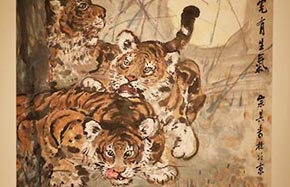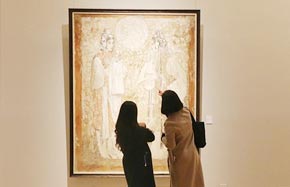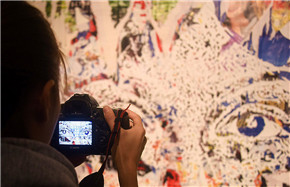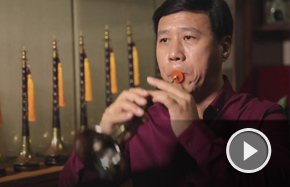VIVA SALSA!
When he moved to Beijing from Arizona about a decade ago, Dunn started teaching salsa at a studio.
He recalls that there were few people dancing salsa in China and most were foreigners.
"In that 10 years, it's completely changed," says Dunn, 35. Dedicated dancers and teachers have opened schools, and numerous bars have brought Latin American rhythms to China.
In 2007, Dunn held the first salsa festival on the Great Wall, where more than 800 dancers, mostly from Asia, stepped to the cha-cha-cha of salsa.
"Salsa is a dance that comes from the streets," he says. "People visiting the Great Wall always stop and watch us. Some of them also join us. Even the security officers took pictures for us."
The celebratory event attracts people from all walks of life. Some are professional dancers, who want to take their dance to another level, compete and perform onstage. But the majority of his students — who include doctors, lawyers and university students — take up salsa as a hobby.
Li Xuechun, 30, is also an enthusiastic salsa dancer. Unlike Wang, who competes and performs onstage, Li takes salsa as a vehicle for recharging. A former yoga teacher who grew weary of the workplace pressure, she quit her job a year ago to start her own company. She says that dancing salsa makes her feel fresh and new.
"It's simple and relaxing. You don't have to worry about dancing the wrong steps because it's free and easy to remember. Even listening to the music makes me happy," she says.
"Salsa is for everyone. You can start at any time of your life," says Dunn, who was introduced to salsa in his university days by a Puerto Rican friend. Before that his dream was becoming an American football player.
"I was 21 years old and I thought: It's cool. I asked her ‘Where did you learn that?' and she said ‘I grew up with it'," Dunn says.
"The feeling and the atmosphere that the music creates attracted me most at the beginning," he continues. "I used to go to a hip-hop club where everybody was about drinking and meeting somebody."
When he went to a salsa club, Dunn says, he was blown away.
"It's like watching a movie. Everybody was dancing and laughing," he says. He enjoys having close friends who are Latinos, whose culture is very open, warm and welcoming.
Dunn's wife, Xu, a Beijing native, first saw salsa in Sweden while visiting her aunt in 1997. A former percussionist in the singing and dancing troupe of Henan province, Xu learned salsa fast and she attributed the talent to her parents — her mother was a Chinese folk dancer and her father was a Peking Opera singer.
"There was no Latin music or dance community in Beijing until the first salsa bar La Habana opened at Sanlitun around 1998. Soon, many other Latin bars popped up," recalls Xu. "Salsa is very social. It brings people together, not just as husband and wife, but it brings friends together too."
She and Dunn gave the name Phoenix to their dance studio because the word symbolizes China and also refers to where Dunn came from — the city of phoenix.
"Dance has always been a part of Chinese culture. The variety of energy brought by salsa is intriguing: It could be sexy, classic, elegant and powerful. Your personality comes out from your dancing," she says.
|
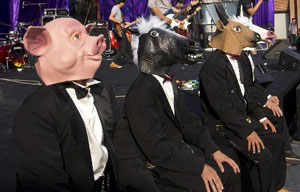 |
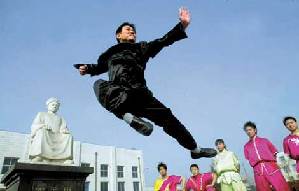 |







